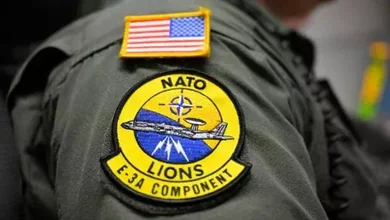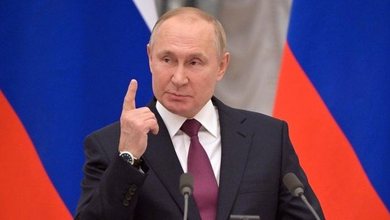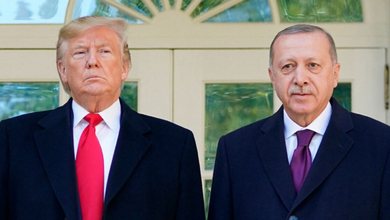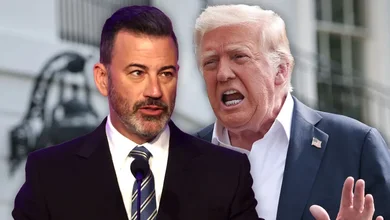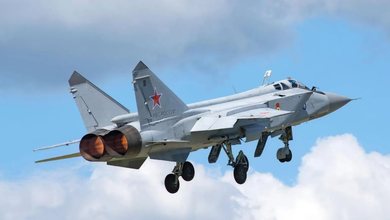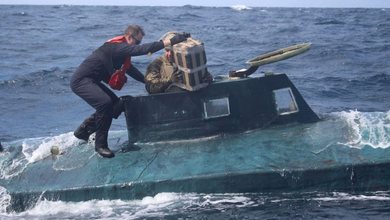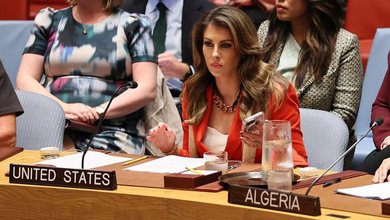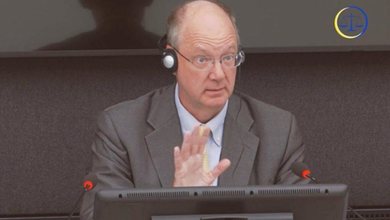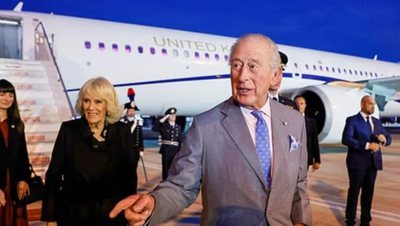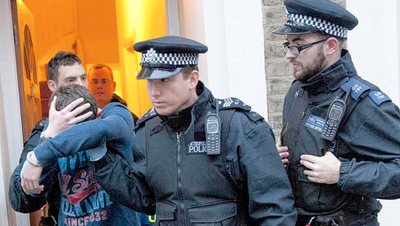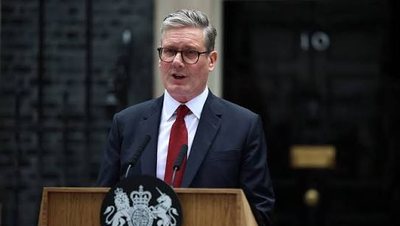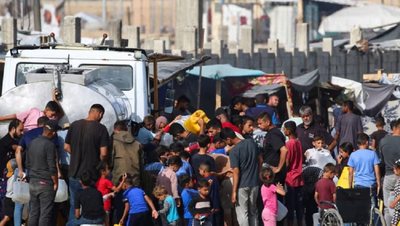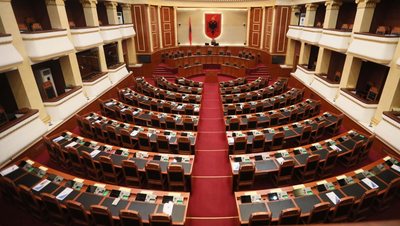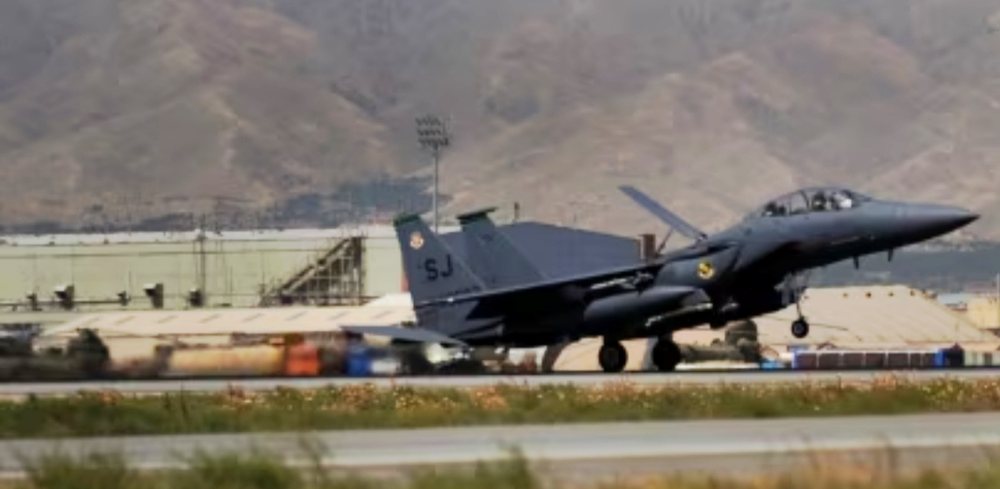
US President Donald Trump speaks to troops during a surprise Thanksgiving visit to Bagram Air Base in 2019.
The US president has stated that he wants to regain control of Bagram Air Base in Afghanistan.
President Donald Trump suggested that his administration is negotiating with the Taliban to retake the base, which is in a strategic position.
The Taliban denied the possibility of returning control of Bagram to American control.
US President Donald Trump said he wants to return Bagram air base in Afghanistan to American control, in a move that could revive US involvement in the country and reclaim a strategic asset lost during the West's chaotic withdrawal four years ago.
Speaking alongside British Prime Minister Keir Starmer on September 18, Trump suggested that his administration is negotiating with the Taliban for US forces to once again take over the base outside Kabul, which was abandoned in 2021, shortly before the Taliban regained control of Afghanistan.
He also said that the base's strategic location, near nuclear facilities in China - a country that shares a 92-kilometer border with Afghanistan - makes it particularly valuable.
"We're trying to take it back because they need things from us. We want to take that base back," Trump said during a joint news conference with Starmer in Britain. "But one of the reasons we want the base is, as you know, it's only an hour away from where China makes its nuclear weapons."
Trump did not provide details on what the Taliban might be asking the US for, and it is not clear whether he was referring to a real plan to regain ownership of the Bagram base or what exactly the Chinese facilities he mentioned were.
But his statements were the first public acknowledgement that negotiations may be underway to reclaim the base and other US military assets that fell into the hands of the Taliban.
Why is the Bagram base important?
Bagram, located about 40 kilometers north of Kabul and built by the Soviet Union in the 1950s, was the largest US base in Afghanistan and served as the central command during the 20-year occupation of the country.
During the briefing on September 18, Trump said that Bagram was one of the largest air bases in the world and had one of the longest runways built of heavy concrete and steel.
The base has a 3.6-kilometer runway, capable of hosting bombers and large transport aircraft.
Trump had reached an agreement to withdraw from Afghanistan by the end of his first presidential term. But those plans were then continued by President Joe Biden in 2021. Trump has repeatedly criticized his successor for his handling of the withdrawal from Afghanistan, when the US left behind thousands of weapons and other military equipment and a large embassy complex in central Kabul, which remains empty to this day.
SEE ALSO: Handover of Bagram base, "key" to US troop withdrawal from Afghanistan
Why is Trump focusing on China's nuclear weapons?
Trump's argument that Bagram is a regional hotspot due to its proximity to China is not new.
During the election campaign, the US president claimed that Bagram was under the control of the Chinese People's Army, and during his first cabinet meeting – after taking office for his second presidential term – he said that in his plan for withdrawing from Afghanistan "we would keep Bagram... not because of Afghanistan, but because of China, because the base is an hour away from where China produces its nuclear missiles."
At the time, he claimed that Bagram "is now under the influence of China."
The Taliban denied the claims and China said it has no military presence at Bagram.
SEE ALSO: World powers race to reach out to the Taliban
But his statements about Chinese nuclear facilities appear to refer to the Lop Nur nuclear test site, located 2,000 kilometers across the border, in the northwestern region of Xinjiang.
This building was the site where China tested its first nuclear bomb nearly 60 years ago, and satellite images show an expansion of buildings and roads around the area since 2017. The site is not known as a nuclear weapons production center, as Chinese production is believed to be concentrated in the central part of the country.
China has rapidly expanded its nuclear forces in recent years, raising alarm at the Pentagon, which has said that the People's Army of China has increased its nuclear arsenal to 600 nuclear warheads by mid-2024 - an increase of 20 percent per year.
Can Trump take control of Bagram from the Taliban?
In his latest statements, Trump did not specify what exactly he envisions for Bagram, but his statements come amid a growing engagement between the Taliban and US envoys.
Washington has maintained a minimal level of public engagement with Afghanistan since the Taliban took power, limiting it largely to hostage negotiations. Afghanistan has remained largely isolated on the world stage and its economy is struggling to attract foreign support and private investment.
But in a rare visit last week, Adam Boehler, the Trump administration's special envoy for the hostage situation, met with Taliban Foreign Minister Amir Khan Muttaqi in Kabul.
Taliban officials also rejected Trump's suggestion that the US could regain control of Bagram, but they left open the possibility of talks to improve relations.
"Without the US having any military presence in Afghanistan, both Afghanistan and the US should engage with each other and they can have political and economic relations based on mutual respect and common interests," wrote Zakir Jalaly, a Taliban Foreign Ministry official, on social media.
"The Afghans have never accepted anyone's military presence throughout history," Jalaly added. "But for other types of engagement, all avenues remain open to them."
Other Taliban officials were harsher in their public statements.
Muhajer Farahi, a Taliban deputy minister, posted part of a poem on X: "Those who once banged their heads on rocks with us, their minds have not yet found peace."
He ended his post with "Bagram, Afghanistan."
The US State Department and the White House have not yet made any public statements about Bagram, while the Pentagon's chief spokesman, Sean Parnell, said in a statement to reporters that the War Department "regularly reviews how the department would respond to a variety of events around the world" and that "we are always ready to carry out any mission as directed by the president."/REL


